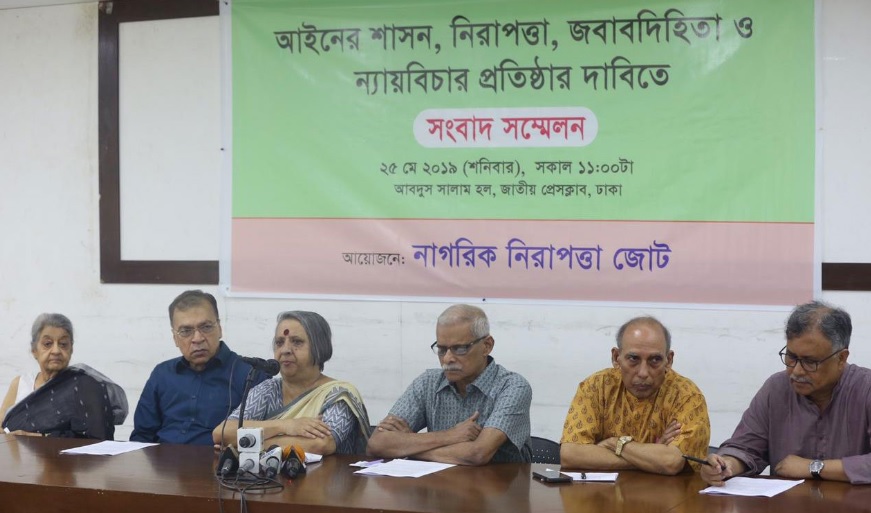Bangladesh: Rights bodies demand judicial inquiry for extrajudicial killings
118 persons were killed in “so-called gunfights” with law enforcers from January to April this year, report says- Nayadiganta English Desk
- 25 May 2019, 17:20

A newly-formed citizen’s alliance in Bangladesh today called for forming a judicial probe commission over the incidents of enforced disappearance, abduction and extra-judicial killings to bring the real culprits to justice.
Claiming that these incidents have taken an epidemic turn in the country, noted citizens also said the formation of a judicial probe commission and greater unity for ensuring the security of the citizens are needed.
They were addressing at a press conference organised by the citizen’s platform, Nagorik Nirapotta Jote, at the National Press Club in Dhaka.
Referring to findings of Ain O Salish Kendra, Shamsul Huda, executive director of Association for Land Reform and Development, said around 118 persons were killed in “so-called gunfights” with the members of law enforcement agency from January to April this year in the country.
As many as 354 women and 234 children were raped at the same time while 144 children were killed and 171 tortured, he said, while reading out a written paper.
Transparency International Bangladesh Executive Director Iftekharuzzaman said even after nearly five decades of the country’s independence, people have to struggle for their basic rights.
“The environment which is required for protecting the people’s basic rights has been tainted and its worrisome part is “our institutional weaknesses”, he said.
Widespread partisanship has taken place in democratic and state-owned institutions where corruption increased alarmingly and lack of good governance is also evident, he added.
He added: “As a result, the institutions failed to demonstrate their professional skills and responsibilities”.
There is still ambiguity over whether provision 57 of the Information and Communication Technology Act still exists, he said.
Criticizing the adverse impact of the Digital Security Act he added people’s freedom of expression, opportunity to be part of the development process and the chance for making the government accountable has gone completely.
Prominent rights activist Hameeda Hossain said there should be a type of relationship between the government and the citizens through which “people can openly understand to which direction the government is heading for.”
Khushi Kabir, coordinator of Nijera Kori, among the noted citizens, also spoke at the press conference.
Kamruzzaman
More News
-
- ৫ঃ ৪০
- খেলা
-
- ৫ঃ ৪০
- খেলা

